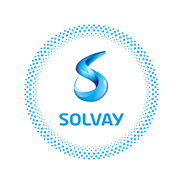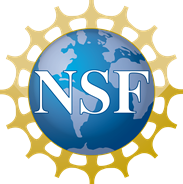
November 26 - December 1, 2023
Boston, Massachusetts
Symposium Supporters
2023 MRS Fall Meeting & Exhibit
Symposium DS06-Integrating Machine Learning with Simulations for Accelerated Materials Modeling
The advent of high-speed computation has significantly accelerated the materials modeling and simulation paradigm in the past few decades. These simulations cover wide length-and time-scales using ab-initio first principle, atomistic, mesoscale, and continuum simulations. Despite the economical nature of these simulations in comparison to experiments, they still suffer from the major deficiencies, namely, limitations on the systems size, simulation time, accuracy of simulations, transferability of a simulation to different scenarios, to name a few. For example, while first principle simulations can provide accurate predictions on the material response to the electronic level, they are limited to a few hundreds of atoms. Recently, machine learning has shown promising means to address some of these challenges successfully. Some of these developments include machine-learned interatomic potentials, physics-informed neural networks, convolutional neural network based microstructure modeling, and graph neural networks for structure–property correlations. This symposium will highlight the latest development in machine learning for materials simulations with specific focus in three major areas: (i) supporting and accelerating simulations using machine learning (for example, machine learned potentials), (ii) interpreting and decoding simulations and high-throughput data using machine learning, (iii) replacing traditional differential equation-based simulations with machine-learned simulations.
Topics will include:
- Development of machine learned inter-atomic potentials
- Physics-informed machine learning models for materials simulation
- Graph neural networks for material modeling
- Development of realistic material models using image processing
- Transfer learning for materials modeling
- Topology optimization using machine learning
- Reduced order machine learning models for atomistic simulations
- Development of tailored microstructure using machine learning
- Machine learning for continuum simulations
- Using natural language processing for materials modeling
- Accelerating large scale simulations
- Active learning-based hybrid simulations
- Inferring materials response through machine learning models
Invited Speakers:
- Pinar Acar (Virginia Tech, USA)
- L. Catherine Brinson (Duke University, USA)
- Kamal Choudhary (National Institute of Standards and Technology, USA)
- Alexander Hartmaier (Ruhr-Universität Bochum, Germany)
- Olexandr Isayev (Carnegie Mellon University, USA)
- Binquan Luan (IBM T.J. Watson Research Center, USA)
- Shyue Ping Ong (University of California, San Diego, USA)
- Kiran Sasikumar (Avant-garde Materials Simulation, Germany)
- Tess Smidt (Massachusetts Institute of Technology, USA)
- Rama Vasudevan (Oak Ridge National Laboratory, USA)
Symposium Organizers
N M Anoop Krishnan
Indian Institute of Technology Delhi
Civil Engineering
India
Mathieu Bauchy
University of California, Los Angeles
Civil and Environmental Engineering
USA
Ekin Cubuk
Google Inc
USA
Grace Gu
University of California, Berkeley
Mechanical Engineering
USA




-2.tmb-mtg_rel_ad.png?Culture=en&sfvrsn=a4240c09_1)

























